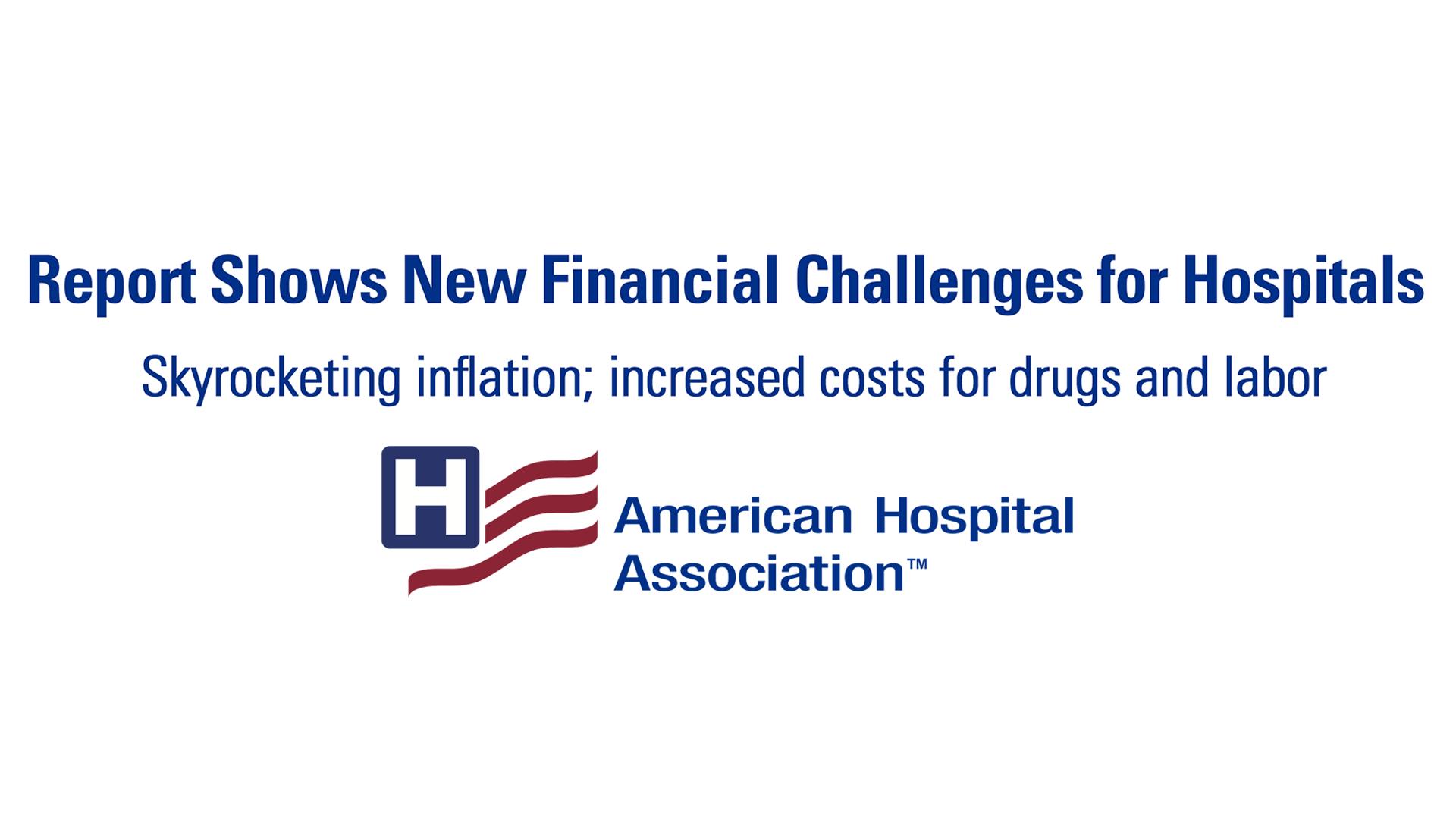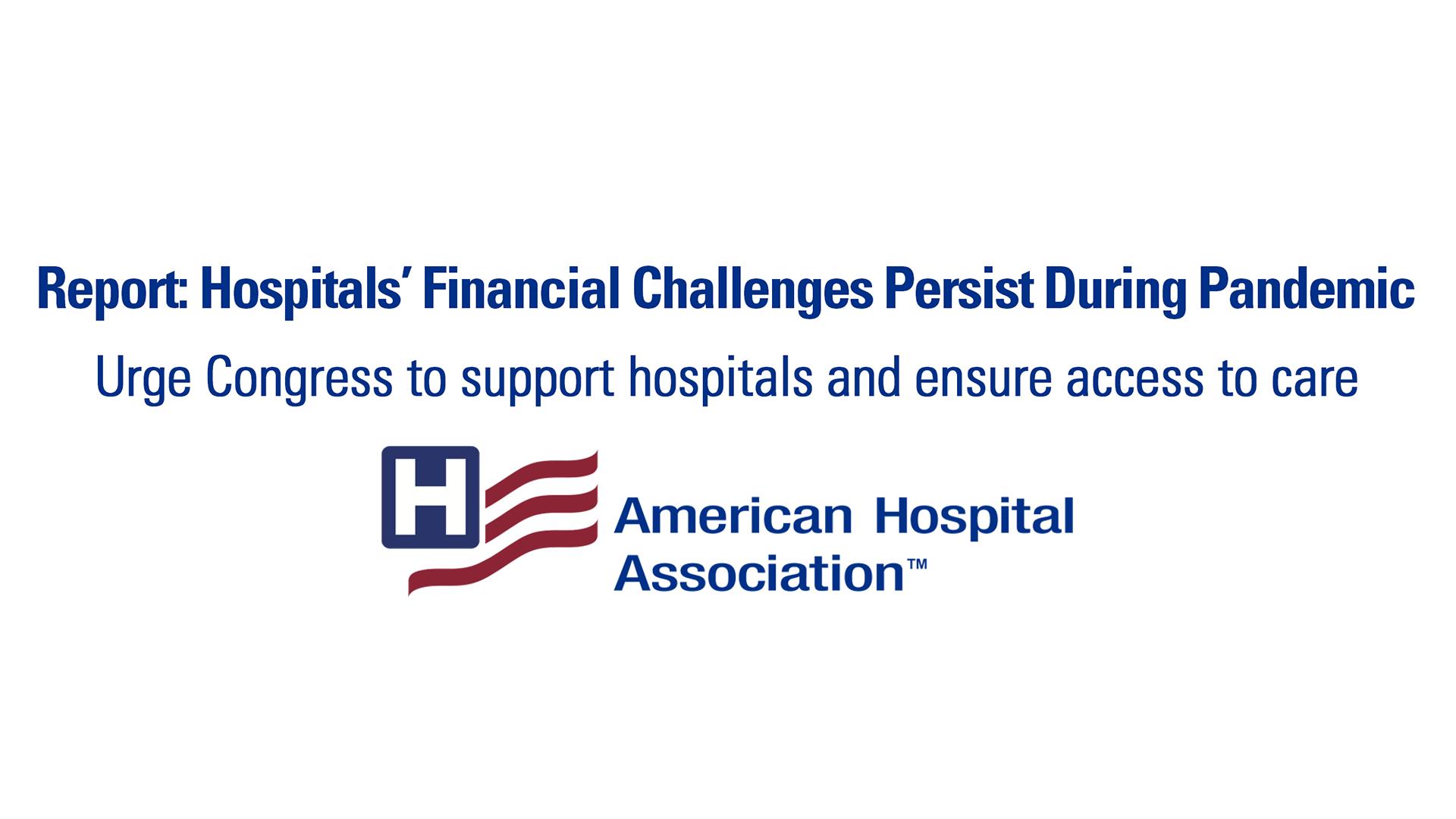Plus, support for a menthol cigarette ban | Friday, April 29, 2022
| | | | | | | Presented By American Hospital Association | | | | Axios Vitals | | By Caitlin Owens · Apr 29, 2022 | | Good morning. Happy Friday. It's Caitlin Owens filling in for today. Today's word count is 794, or a 3-minute read. | | | | | | 1 big thing: Medicare Advantage debate rekindled by watchdog report |  | | | Illustration: Megan Robinson/Axios | | | | A federal watchdog report accusing Medicare Advantage of denying too many services that should have been paid for under Medicare coverage rules is inflaming Washington's debate over whether the program is helping seniors or simply padding insurers' pockets, Axios' Tina Reed and I report. Why it matters: Medicare Advantage enrollment has ballooned in recent years, making the question of its value — both in terms of quality and cost — increasingly important. Driving the news: The report yesterday from the HHS Office of the Inspector General says it found "widespread and persistent problems" of inappropriate denials of services and payment requests that met Medicare coverage rules. - Auditors found 15 Medicare Advantage organizations denied 12,273 previously authorized requests for medical care during the first week of June 2019.
- Putting that into context, the Medicare Advantage plans would have denied 84,812 beneficiary requests for services that met Medicare coverage rules that year.
Between the lines: Medicare Advantage has proved highly lucrative for insurers, turning Medicare into more of a private marketplace as enrollment swells. What we're watching: The program generally isn't an attractive political target given its popularity with seniors and, for Republicans, its embrace of of private-sector coverage. - Policymakers often turn a blind eye to exorbitant health care costs in response to health industry lobbying.
- But denial of services could make the program an easier target for critics.
The bottom line: Medicare Advantage is unquestionably getting bigger. The report once again raised the question of whether that's a good thing. Go deeper. |     | | | | | | 2. Praise for FDA's proposed menthol ban |  | | | Illustration: Sarah Grillo/Axios | | | | Health and civil rights groups each praised the FDA's proposed ban on menthol cigarettes yesterday, saying that it will disproportionately benefit Black Americans' health. Why it matters: Supporters are framing the proposal as a win for health equity — a notable argument, given the historical role of the Congressional Black Caucus in keeping menthol cigarettes on the market. - Black Americans are much more likely than white Americans to smoke menthol cigarettes, and experts argue that the tobacco industry has aggressively marketed to the demographic.
- Black Americans are more likely to die from smoking-related diseases than white Americans, according to the CDC.
The big picture: The pandemic has shone a spotlight on racial disparities in health care, leading to increased focus on the factors that drive bad outcomes among people of color. What they're saying: "For too long, menthol cigarettes have had an insidious grip on African American communities," said the National Medical Association, which represents Black doctors, in a statement. - "As Black physicians, we applaud the FDA for taking such an important measure to reverse the adverse health outcomes that disproportionately affect our communities and are directly related to the use of these tobacco products."
The other side: Some Black community leaders, however, oppose the proposal. - The Rev. Al Sharpton, for example, has warned that it would expand illegal sales of menthol cigarettes and "place menthol smokers at a significant risk of entering the criminal justice system."
|     | | | | | | 3. Watch out for a blockbuster obesity drug | | Eli Lilly announced yesterday that its potential obesity drug helped patients lose up to 22.5% of their weight in late-stage clinical trials, Reuters reports. The drug is also being studied against diabetes. Why it matters: The obesity market is likely huge in the U.S., meaning the drug could potentially generate billions of dollars for the company while helping Americans lose weight. - One analyst expects around $4 billion in peak sales, per Reuters.
Go deeper: Why America needs new urgency around diet-related diseases |     | | | | | | A message from American Hospital Association | | Ensure the care is always there | | |  | | | | Mounting financial challenges threaten access to care as hospitals and health systems around the country struggle with rising input costs and reductions in Medicare payments. Next steps: They need additional support from Congress. Read the new report. | | | | | | 4. Tackling the multiple sclerosis mystery |  | | | Illustration: Shoshana Gordon/Axios | | | | A cure for multiple sclerosis remains elusive, but a decade of technological and scientific advances is starting to shed light on possible causes, better diagnostics and potential treatments for the disease, Axios' Eileen Drage O'Reilly reports. Why it matters: MS — a central nervous system disease affecting almost 3 million people globally — has baffled doctors since it was discovered over a century and a half ago. - FDA-approved treatments are designed to slow the progress of the disease or try to reverse myelin damage, but often have serious side effects, including possible liver damage, an elevated risk of certain cancers and rendering COVID-19 vaccines less effective.
The latest: Researchers on Wednesday published a study that found four new autoantigens, or disease-driving immune cells, that could be targeted in both diagnostics and drugs. - Meanwhile, diagnostics and assessments via high resolution MRIs, spinal fluid analysis techniques or genomics continue to rapidly improve.
What's next: These incremental advances will likely begin to answer some fundamental questions in the next few years about why some people get MS and how it might be treated. |     | | | | | | 5. Dog of the week |  | | | Photo: Lizzy Demaree | | | | Meet Violet, a 1-year-old pup named after a character in her favorite show, "Downton Abbey," writes her mom Lizzy Demaree. - She also "loves long walks, stretches, other pups and tiny humans," and her favorite food is "anything mom or dad is holding," says Demaree.
|     | | | | | | A message from American Hospital Association | | Ensure access to care and support hospitals | | |  | | | | Hospitals and health systems continue to face enormous challenges from the pandemic. Why it's important: An exhausted workforce, higher input costs and reductions in Medicare payments threaten patients' access to care. They need help from Congress. Read the new report. | | |  | It's called Smart Brevity®. Over 200 orgs use it — in a tool called Axios HQ — to drive productivity with clearer workplace communications. | | | | | | Axios thanks our partners for supporting our newsletters. If you're interested in advertising, learn more here.
Sponsorship has no influence on editorial content. Axios, 3100 Clarendon Blvd, Suite 1300, Arlington VA 22201 | | | You received this email because you signed up for newsletters from Axios.
Change your preferences or unsubscribe here. | | | Was this email forwarded to you?
Sign up now to get Axios in your inbox. | | | | Follow Axios on social media:    | | | | | |









No comments:
Post a Comment